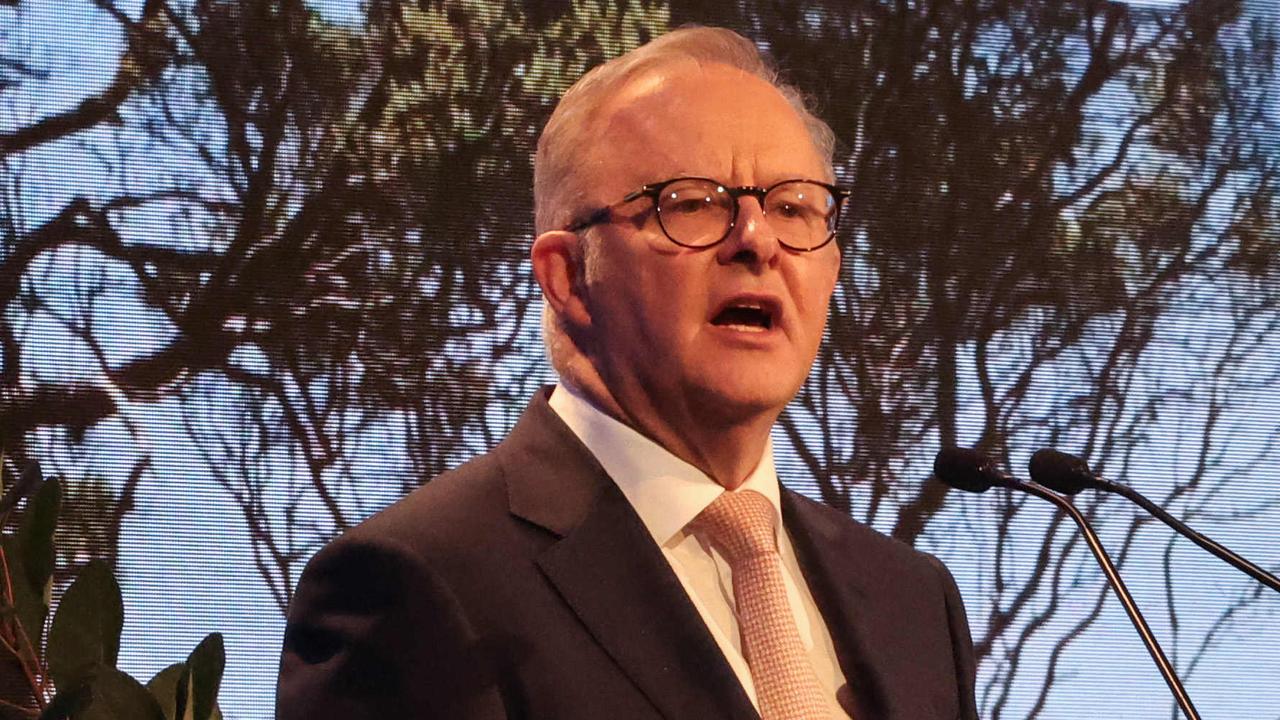Biggest trends for Melbourne’s hospo scene in the next decade
Industry experts say these innovations will help the city maintain its culinary edge as the sector bounces back post-pandemic.
Future Victoria
Don't miss out on the headlines from Future Victoria. Followed categories will be added to My News.
Conscious dining, gourmet takeaway and a surge in premium suburban restaurants will help Melbourne secure its mantle as the foodie capital of Australia over the next decade.
But solving hospitality’s skills shortage crisis, reducing red tape and shoring up Victoria’s produce supply chain are vital for the state to maintain its culinary edge, industry experts say.
“The biggest challenge Melbourne’s hospitality scene will face in the coming years is staff,” Commune Group creative director Simon Blacher said. “As the city grows, so will the demand for venues and, in turn, for staff.”
As the industry grapples with a pandemic-depleted workforce, Crown executive general manager of food and beverage Enda Cunningham said greater investment in skills training and making hospitality a career and “not just a job” were critical to attracting talent.
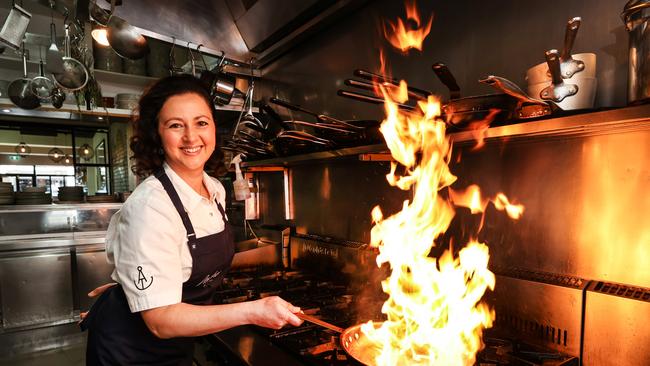
Initiatives like the new free training program for 1000 Victorians announced by Crown, VECCI and the Australian Hotels Association could help ease the skills shortage, he said.
“We need to encourage staff to move within the Victorian industry rather than overseas for new experience, and we need to see more partnerships and collaborations between chefs, restaurants and producers, all working together to grow each other’s businesses,” Mr Cunningham said.
Restaurateurs called for less government meddling and more consistent decision-making to help them thrive.
“A loosening of red tape and the bureaucratic permit process is essential to help the industry innovate and keep growing,” Mr Blacher said.
AHA Victorian chief Paddy O’Sullivan urged governments to “resist the temptation to raise taxes and charges”, while Mr Cunningham called for new grants for start-ups and a two-year amnesty on fringe benefits tax to stimulate business and encourage innovation.
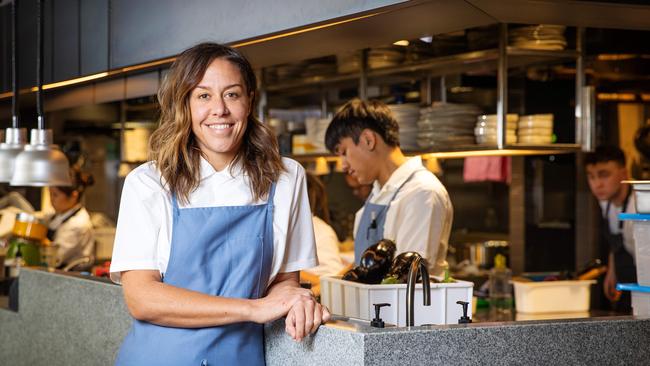
Innovation in the next decade is expected to centre around sustainability, with consumers demanding more eco-friendly venues, plant-based foods and locally sourced ingredients.
“Diners are increasingly seeking out brands and experiences that are not only good for them, but good for the world around them,” Mr Cunningham said.
“Restaurants that cater to these attitudes and make their menus locally sourced will have an advantage.”
Mr Cunningham said the pandemic had also prompted a renewed focus on the strength and reliability of Victoria’s food supply. Growing local supply chains would benefit producers, consumers and the broader economy.
Chefs said along with a trend towards local produce and greener practices, veganism would become more mainstream.
“People are more health conscious and more environmentally conscious. I think we’ll be starting to see vegetables as mains and proteins as sides,” Mr Blacher said.
Shane Delia, whose Providoor venture has revolutionised at-home dining, tipped a boom in high-quality takeaway as time-poor people seek out top-notch midweek meals.
And Anchor Restaurant director Rosalin Virnik said suburban diners would reap the long-term benefits of Melburnians turning to local restaurants during the pandemic.
“The repercussions can already be seen, with several prominent restaurateurs either opening, or planning to open, venues in their local suburbs,” she said.
“This will result in greater access to a higher grade of hospitality venues across all of Melbourne metro.”
Mr O’Sullivan said seeing Victorians flock to local pubs during Melbourne’s reopening “gives us real confidence that the future of that kind of basic hospitality is secure”.
Food + Drink Victoria chief executive Anthea Loucas Bosha said hospitality would embrace the city’s growing population “with gusto”.
“(They will) continue to do what they do so well – offer diverse and exciting experiences that are about more than what’s on the plate or what’s in the glass but as a reason to come together and share something special with loved ones,” she said.
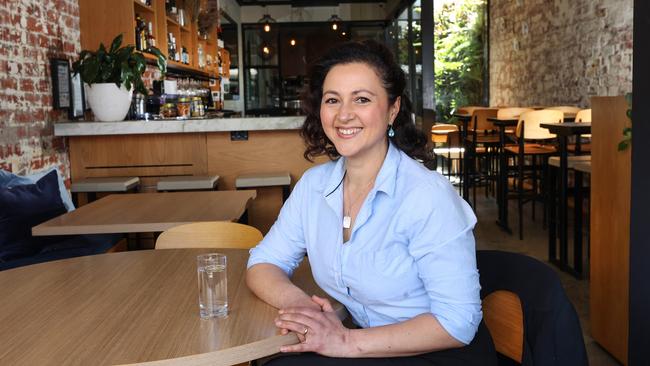
A WIN FOR THE SUBURBS
Remote working has changed the face of suburban dining forever, says Rosalin Virnik.
The Anchor Restaurant director said Melburnians were now more likely to seek out local dining options — and restaurateurs were in the box seat to capitalise on consumer hunger for high-quality suburban options.
“The repercussions can already be seen, with several prominent restaurateurs either opening or planning to open venues in their local suburbs,” she said.
“This will result in greater access to a higher grade of hospitality venues across all of Melbourne metro.”
This would also lead to more local employment opportunities, she said.
Keeping it local was also key to Victoria retaining its reputation as a foodie paradise, she said.
She said the state’s varied landscapes and climate zones put it in prime position to provide top-quality produce from land and sea.
She encouraged both chefs and consumers to prioritise supporting Victorian producers.
“Ideally, chefs should be partnering with local producers and artisans and showcasing their ingredients,” she said.
“Pop-ups are a very funky and neat way for cross-pollination of ingredients and their uses both within Melbourne and in regional Victoria.
“Supporting local markets and farmers markets is an excellent way for Melbourne consumers to stay in tune with Victorian growers, producers and artisans.”
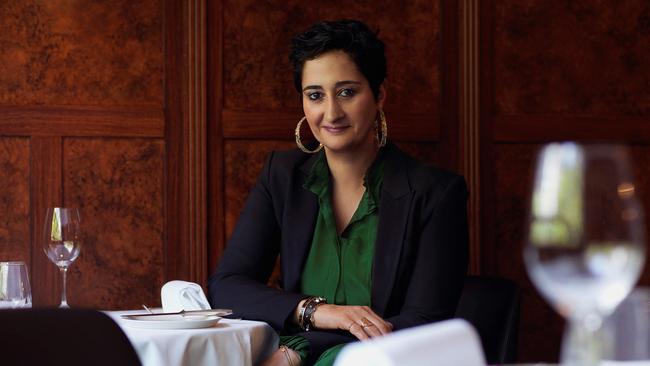
DIVERSITY AND VIBRANCY ON A PLATE
A spate of recent venue openings in Melbourne is a strong sign of things to come for the city’s culinary scene, Food + Drink Victoria chief Anthea Loucas Bosha says.
Ms Loucas Bosha said an explosion of new offerings – as well as those in the pipeline for the coming year – was “testament to the strength of the industry and the confidence food operators have in investing in exciting new venues that continue to build on food and drink offer Melbourne and Victoria is famous for”.
“The diversity and vibrancy of the food offer in Melbourne and across the state has never been stronger,” she said.
Hospitality operators would embrace the city’s growing population by offering diverse and exciting experiences “that are about more than what’s on the plate or what’s in the glass but as a reason to come together and share something special with loved ones”.
“I am constantly in awe of the innovation, creativity and excitement that permeates our food scene and our talented chefs and restaurateurs that create unique, heartfelt food experiences day in and day out,” she said.
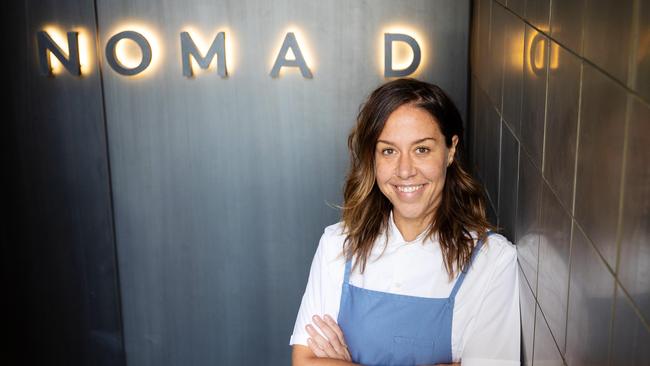
WHY PRICE OF FOOD MUST INCREASE
Hospitality has historically been a “horrible” industry to work in – and cultural change in kitchens is urgently needed to solve one of its toughest challenges, top chef Jacqui Challinor says.
Stress, burnout, low pay and long hours had contributed to a staff exodus from kitchens and front of house positions, the Nomad Melbourne executive chef said.
“We did this through years and years of conditioning and it’s time to fix it,’ she said.
Challinor said it was important to prioritise mental and physical health, commit to fair pay and hours and create supportive workplaces.
“I want to change the narrative around kitchens and the acceptance around yelling and screaming and treating people like garbage, and start factoring in things like people’s mental health and happiness at work and supporting careers,” she said.
“To be the best, we have to work with the best and unfortunately the staffing shortages won’t get better until we make a shift in this industry.”
But improved working conditions would come at a cost to customers, she said.
“The dining public needs to be aware and understand that in order for us to create a more sustainable industry for ourselves, the price of food is going to increase,” she said.
“Restaurants have been running on the slimmest of margins for so long and it’s the staff that bear the brunt of that; we need to see a shift in a guest’s value perception so that this dream of a sustainable industry is achievable.”
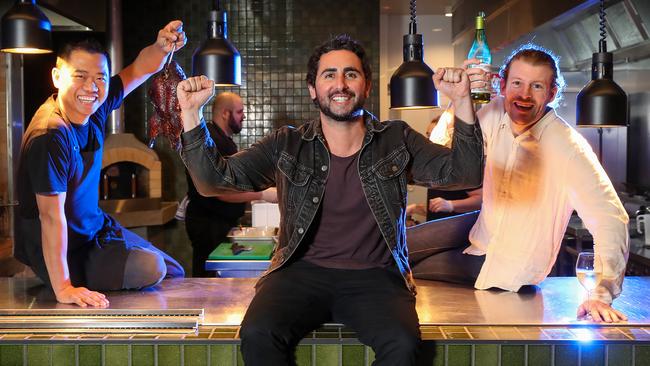
PACKAGING UP A WIN-WIN DEAL
Creating sustainable packaging for the booming takeaway market will be a game changer for Victorian hospitality.
Simon Blacher, head of Commune Group, which includes Tokyo Tina and New Quarter, has identified a “win-win” opportunity – good for both consumers and companies – to reduce the environmental impact of takeaway services.
He said renewable or reusable packaging was “the way forward”.
“Let’s all be honest with ourselves. The food delivery world is here to stay. It’s convenient. People love convenience,” he said.
“But the real winners out of the food delivery market are the people who make the packaging and it’s crushingly bad on the environment.
“I do believe that the person who comes up or the company that comes up with a real sustainable packaging model that can be put into the delivery system, circulated clean, fed back to the consumer, however the structure works, it’s a win-win.”
Mr Blacher said to retain its title of Australia’s foodie capital Melbourne should embrace a European-style model for hospitality and liquor licensing with less red tape.
“It’s a looser approach, but it does tend to put the onus more onto the guests, less onto the restaurant, and really allows us to be more hospitable and to be less worried about all the bureaucracy that goes along to running these businesses and concentrate more on the guest experience, but also clears up the barriers of entry for new operators,” he said.
“If it’s easier to enter the market with a less complicated system to approach, you’re going to bring new business in.”
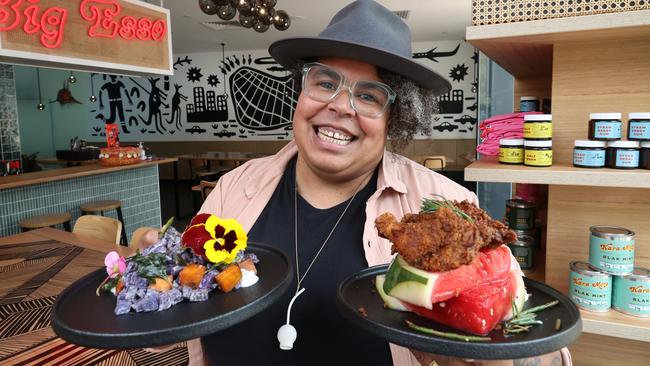
CHAMPIONING HOMEGROWN INGREDIENTS
Embracing Australian products and native meats, fruits and vegetables can help take Melbourne’s foodie credentials into the future, says Mabu Mabu chef Nornie Bero.
“We have a vast country full of fantastic flavours that are indigenous, sustainable, and delicious,” Bero said.
“We’ve shown at Mabu Mabu that you can run entire venues just using homegrown ingredients — even our drinks list is exclusively Australian wines, beers and spirits, with many First Nations-run brands, and they’re so good – we’ve now become a bar as well as restaurant.”
Bero said going online during the pandemic had helped take indigenous foods and products to the wider world.
“What we’re doing and I think what a lot of the industry is moving towards is championing our own produce – not just in Melbourne, but we’re really embracing it here,” she said.
Bero said another important factor in the success of Melbourne’s hospitality industry would be cultural change in workplaces.
“You get better chefs, better floor staff, better managers, better ideas, when people love where they work,” she said.
“I am passionate about creating culturally safe working spaces that are inclusive for our diverse community, and really working with all my staff to mentor and train them.
“I love seeing our staff full of First Nations, and queer community, and of women of colour. We need more of that, and more female chefs, owners, and managers generally.”
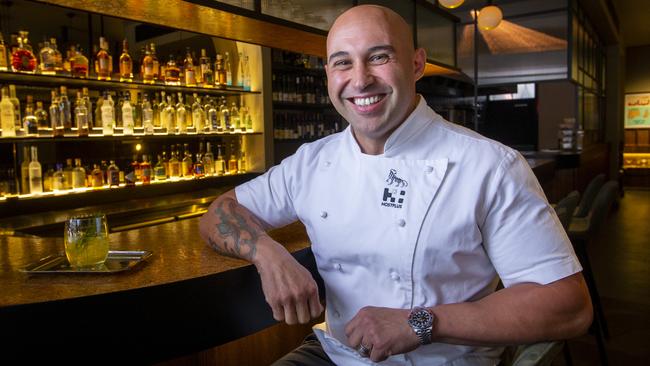
TIME TO TAKE IT AWAY
Lockdowns forced restaurateurs to radically shake up their businesses on the run, leading to innovations like at-home fine dining service Providoor.
And though in-restaurant dining is back, gourmet takeaway offerings will only expand in the future, says founder Shane Delia.
“It’s been an amazing success, connecting restaurants with millions of customers across the country,” Delia said, as the company prepares to expand nationally with a launch in Brisbane.
“We’re going to continue to develop that business, continue to grow its customer base, continue to just improve all facets of the business to create premium dining experiences not just in venues, but in people’s homes.”
Delia also predicted that Victorians would be served up a greater array of “flavours, techniques, and styles of cooking” over the next 10 years.
“Australia has a great reputation as a food destination, not just because of the quality of food, but the diversity, and the high level, the high consistent level of that diversity of cuisine,” he said.
“At the end of the day, I think people want more than what’s just on their plate. They want to have great dining experiences that exceed expectations.”
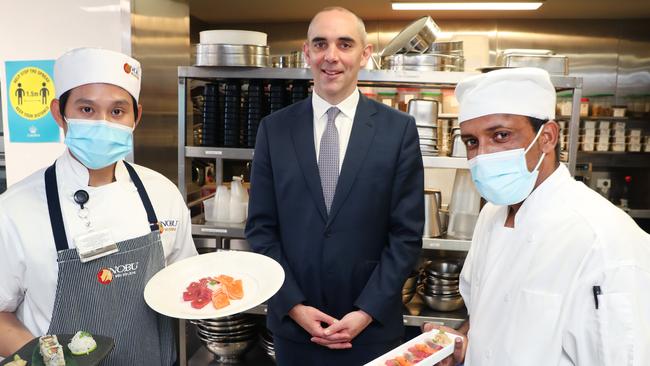
PLANTS FOR THE FUTURE, EVEN FOR MEAT-EATERS
Move over protein — plant-based foods are tipped to take up more space on our plates in the next five to 10 years.
Crown food and beverage boss Enda Cunningham said he expected to see a sharper focus on vegetarian and vegan foods as consumers embraced sustainability.
“The environmental and ethical arguments for vegetarianism and veganism are becoming harder and harder to ignore and increasingly popular and in demand,” he said.
“Vegetarian options have long been staples of restaurant menus, but vegan options are becoming increasingly popular alongside the growing number of vegans in the world.
“There’s a real focus on how do we enhance the vegetarian and the vegan experience.”
Mr Cunningham said even rusted-on meat eaters were becoming more open to plant-based options and “chefs are getting a lot more creative in that space”.
The trend towards more eco-conscious dining would lead to more emphasis on seasonal and local produce, he said.
“Recent global events have shown why sourcing food locally is more important than ever to avoid costs to the planet and sourcing locally also ensures seasonality and freshness of your ingredients,” he said.
“Consumers are becoming increasingly aware of the world’s food supply chain has on the climate and the environment. Restaurants that cater to these attitudes and make their menus locally sourced will have an advantage when appealing to the public’s sensibilities.
“This is a huge opportunity for us as an industry to focus on advancing and marketing not only our Victorian restaurants, but our produce and suppliers. Their strong performance is just as key to us retaining the mantle of food capital of Australia.”



